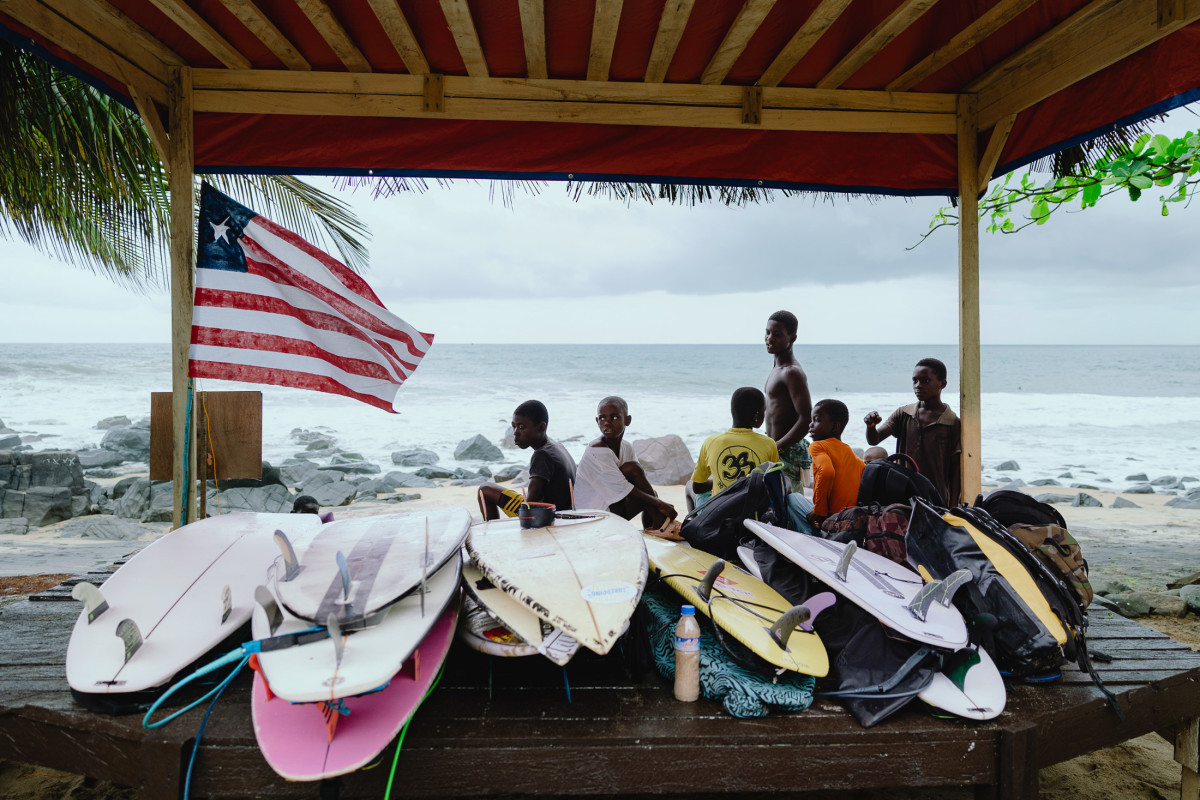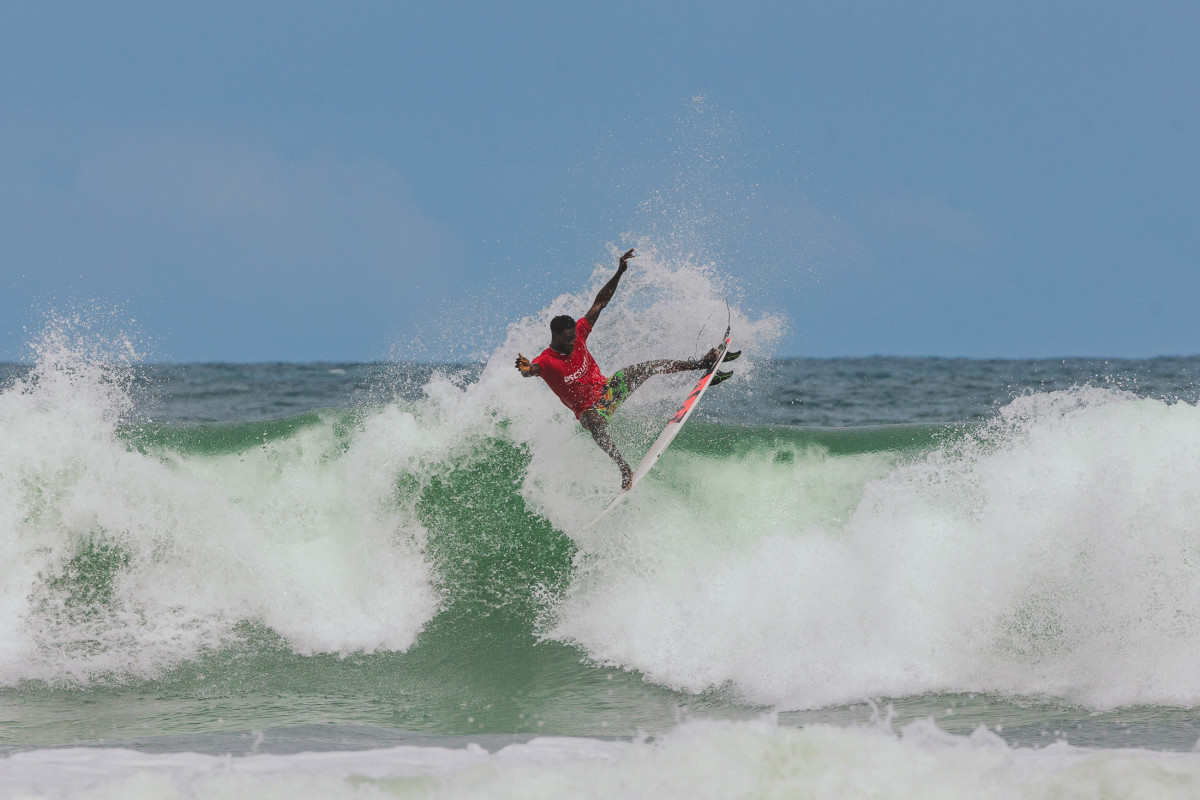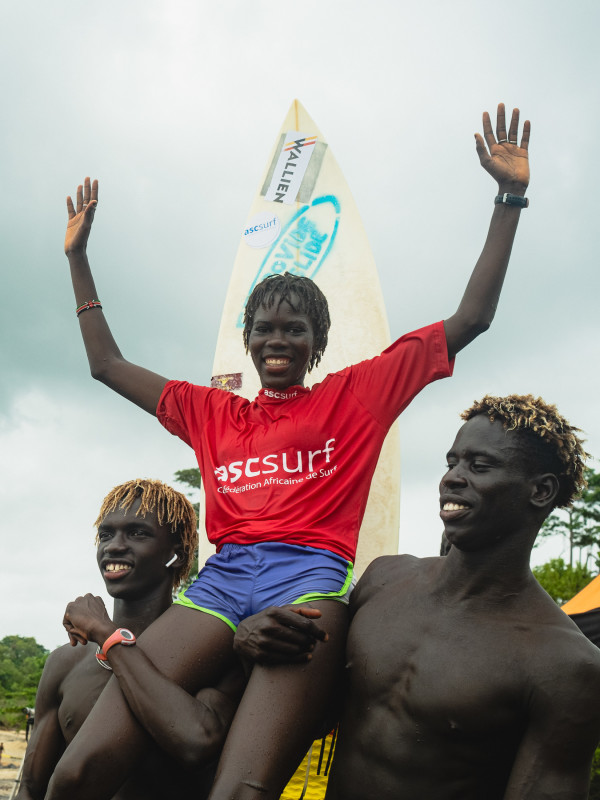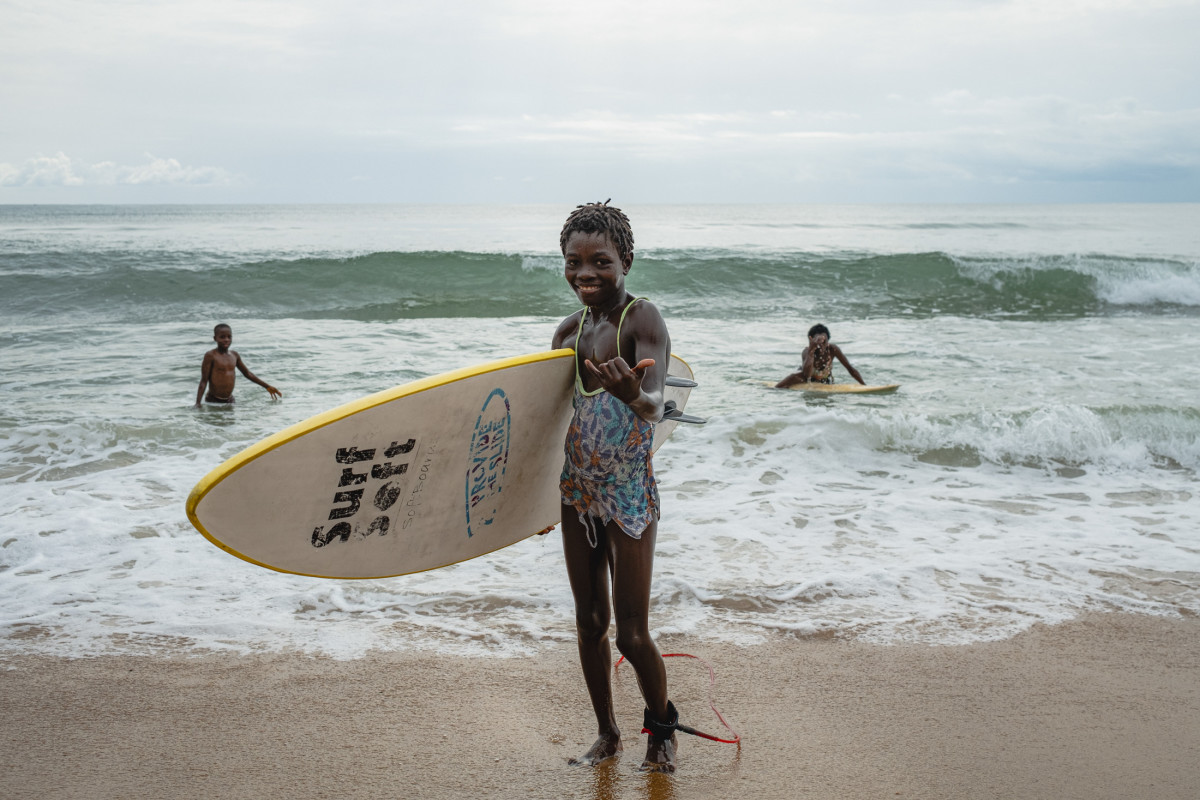
Nicole Sweet
The first event of a new tour across Africa ran last week in Robertsport, Liberia, with Senegalese surfers Cherif Fall and Déguène Thioune taking the win. The new tour, called the Africa Surf Tour, run by the Africa Surfing Confederation (ASC), is a move to bolster opportunities for surfers across Africa to compete with more chances to win prize money and get heats under their belts. The WSL Championship Tour has seen surfers from South Africa and Morocco but no other African country has been represented, despite there being a multitude of waves across the continent’s huge coastline. With an event prize purse of $25,000 USD, the new tour, according to ASC president Omar Seye, aims to grow the future of African surfing.
“Our goal is to promote African professional surfing,” Omar said. “Africa has been the continent that has been forgotten for a long time, but this is the future. My vision is that I want African surfers to stay in Africa, to surf in Africa and earn money in Africa.”

Nicole Sweet
Earlier this year, the Senegalese team was unable to travel to the World Surfing Games in Puerto Rico for a final shot at Olympic qualification citing lack of support to help cover the high cost of travel and difficult visa processes as the reasons they were unable to go. In 2022, Cherif Fall was the highest-placed African surfer at the World Surfing Games – a result that may have been enough to qualify him for the Olympics had he repeated the performance in 2024.
The ASC was recognized by the ISA as the Recognized Continental Association for Africa last year as Senegal prepares to hold the first ever Olympic event on the African continent in 2026 – the Youth Olympics. The ASC’s mission is to “develop our sport across the continent, by organizing high-level competitions and supporting national federations.” Africa now boasts 19 recognized national surfing federations and surf communities are springing up across the coasts from Mozambique to Sierra Leone. The Youth Olympics in Senegal will include surfing on the roster for the first time.
“I had promised the African countries that I wanted to change African professional surfing,” Omar said. “There are many African surfers who have a good level of surfing…we have great beaches and good surf, we want to sell the African surf destination.”

Nicole Sweet
Eighteen-year-old Senegalese surfer Déguène Thioune who won the women’s division in Liberia, described the growth of African women’s surfing: “African surfing is increasing from generation to generation and women’s surfing in Africa is growing,” she said. “When I started surfing there were not many girls doing it, but now we can see that there are many girls surfing in Africa.”
“[The Africa Surf Tour] helps with traveling within Africa to discover other surf spots – if we don’t have these things we will be forced to travel to Europe or the United States,” she added.
“Personally I think that it’s really good because it allows everyone in Africa to earn money from surfing…through this competition we can start developing African surfing through pro African circuits,” Déguène said.

Nicole Sweet
The event in Liberia was vibrant, with the country that was once affected by armed violence hosting Africa’s best surfers who were lighting up the left point at Robertsport. The event signals a profound shift in Liberia’s role in surfing, having been a little known, largely off limits surf destination in the past.
The next event is planned for Nigeria in August, in what will showcase a different side of a country known more for its oil than its surf. “The Africa Surf Tour is 100% African,” Omar said, “and Liberia was a total success.”

